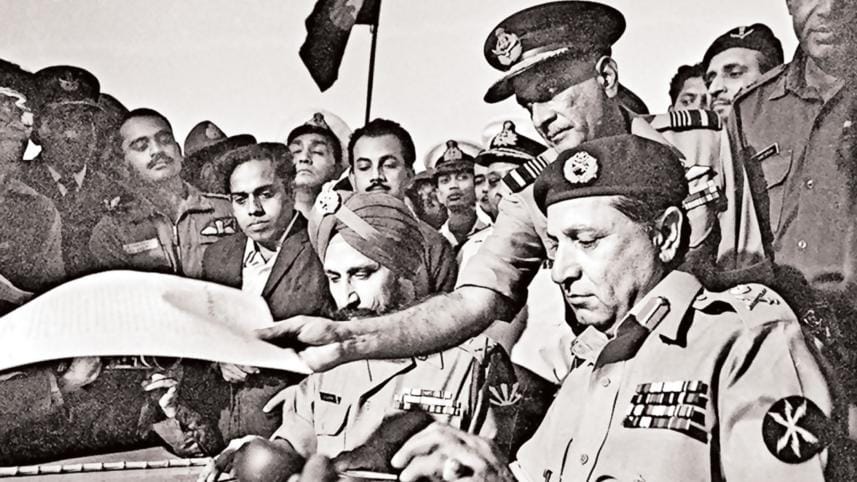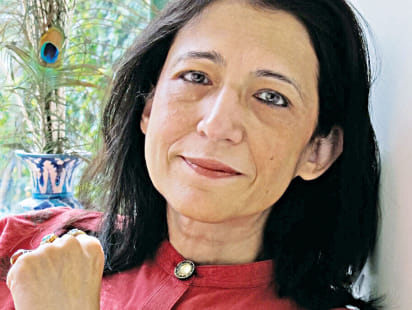‘I regret that Pakistan has still not formally apologised’

In conversation with Ayesha Jalal, Mary Richardson Professor of History and Director of Center for South Asian and Indian Ocean Studies at Tufts University, USA
Priyam Pritim Paul (PPP): How do you evaluate the events of 1971 and the birth of Bangladesh?
Ayesha Jalal (AJ): As a continuation of the historic dynamics of centre and region in the aftermath of a watershed moment like India's partition along ostensibly religious lines. In other words, I consider the birth of Bangladesh much like that of Pakistan—as a failure of federalism in practice in the subcontinent.
PPP: It has often been pointed out that the two great events in the South Asian state system – 1947 and 1971 – involved crises over the question of power-sharing. What was the role of ideas and identities (such as religion, language, region and so forth) behind the two restructurings of the South Asian state system? How do you compare the two events?
AJ: The preeminent idea undergirding the two events was the invention of territorialised identities under European colonialism, that is to say the notion that certain regional and linguistic groups were temperamentally suited to inhabit a specific part of the globe as opposed to others. As for self-identification, the idea that came to gain prominence was the notion of communities-turned-nations that were entitled to certain prerogatives.
1947 and 1971 are both instances of the failure of power-sharing arrangements and thus the need to create yet another hyphenated state. They represent an extreme instance of political failure where instead of sharing power, it was deemed better to separate even if that entailed perpetuating problems rather than solving them as is apparent in the continued centre-region tensions in Pakistan and communitarian hostilities in India.
PPP: In terms of the ruling classes and hegemonic ideas in the two wings of Pakistan prior to 1971, was there any meaningful difference between East and West Pakistan? For example, did East Pakistani politics have more popular-democratic content and West Pakistan more feudal-aristocratic hegemony?
AJ: There was certainly a stronger intellectual and agitational basis of politics in East Pakistan than in West Pakistan that was directly related to different kinds of social relations in the urban and agrarian sectors of the two wings. The relative success of the 1951 land reforms in East Pakistan compared to the land reforms of 1958 in West Pakistan also gave a different character to Bengali politics. The land reforms in the West allowed big landlords to retain most of their land while the ones in the East by comparison brought some relief to landless classes. Also, landownership in the West was much more skewed towards bigger landlords than in the East.
PPP: In 1971, state-sponsored violence was unleashed against the unarmed masses of East Pakistan. This contrasts with the rather diffuse and socially organised mass violence of the riots of 1947. You have written on Saadat Hasan Manto, one of the greatest narrators of the horrors and memories of partition. Manto was also a trenchant critic of South Asian nationalist leaders and their politics. What do you think Manto's take on 1971 would have been had he lived to see it?
AJ: He would have condemned the hollow state narrative that sought to justify the atrocities committed in the name of nationalism and security. And knowing Manto, he would have something different to say about the spectacle of Muslims murdering Muslims that was unlike what he personally witnessed during 1947.

PPP: How do you see the impact of 1971 on the post-1971 history of Pakistan?
AJ: 1971 brought about a decisive shift in the regional balance of power in the South Asian subcontinent that has had lasting effects on all aspects of the region—political, economic, and social. In Pakistan itself it resulted in the unchecked dominance of one region – Punjab – over the non-Punjabi regions, generating new centre-region tensions. But this was a dominance exercised by the institutional pre-eminence of a mainly Punjabi bureaucracy and military rather than by a politically united Punjab.
PPP: What's your view on the post-1971 relations between Pakistan and Bangladesh? How do you see the future of their relations?
AJ: I regret that Pakistan has still not formally apologised for the atrocities committed by the army and associated groups. This should have been done a long, long time ago but politics has got the better of ethical considerations. I also think East Bengal's role in the making of Pakistan needs to be recognised more in Pakistani historiography and the impact of the "Pakistan" idea on Bangladesh also acknowledged. Relations between Pakistan and Bangladesh would improve considerably if Islamabad formally issued an apology, leading to more vigorous intellectual and economic exchanges between the two countries.




 For all latest news, follow The Daily Star's Google News channel.
For all latest news, follow The Daily Star's Google News channel.
Comments